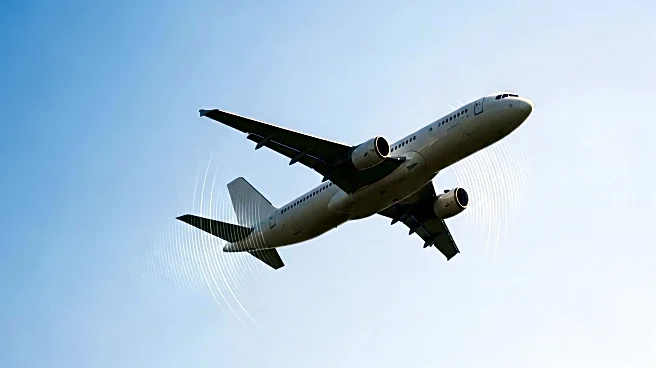What's Happening?
Bulgarian officials have retracted earlier claims that Moscow was responsible for jamming the GPS of a plane carrying European Commission President Ursula von der Leyen. Prime Minister Rosen Zhelyazkov stated that the plane did not experience prolonged interference, contradicting initial reports from the European Commission. Despite no jamming detected by ground instruments, analysts suggest that onboard devices might have detected interference. The incident has sparked debate among experts, with some suggesting the possibility of GPS spoofing, a sophisticated technique potentially used by state actors. Deputy Prime Minister Grozdan Karadjov denied that the Bulgarian government had informed the European Commission of Russian interference, further complicating the narrative.
Why It's Important?
This incident highlights the complexities of geopolitical tensions and the challenges in verifying claims of technological interference. The retraction by Bulgarian authorities underscores the importance of accurate communication between national governments and international bodies. The potential for GPS spoofing raises concerns about aviation safety and the need for robust security measures. The situation also reflects ongoing tensions between Russia and the European Union, particularly in the context of Russia's actions in Ukraine. The broader implications for international relations and security protocols are significant, as they may influence future policy decisions and cooperative efforts to address technological threats.
What's Next?
The European Aviation Safety Agency (EASA) is expected to conduct further investigations by examining the aircraft's onboard computers to determine the nature of the GPS issues. This may lead to enhanced security measures and protocols to prevent similar incidents. The European Union may consider coordinated actions to address the threat of GPS jamming, particularly in regions close to Russia. Stakeholders, including aviation authorities and international security experts, will likely engage in discussions to improve detection and response strategies for technological interference.
Beyond the Headlines
The incident raises ethical and legal questions about the use of technology in geopolitical conflicts. The potential for GPS spoofing by state actors highlights the need for international regulations and agreements to prevent misuse of technology. Long-term, this may lead to increased investment in cybersecurity and technological resilience in the aviation industry. The cultural dimension involves the perception of safety and trust in international travel, which could be affected by such incidents.










